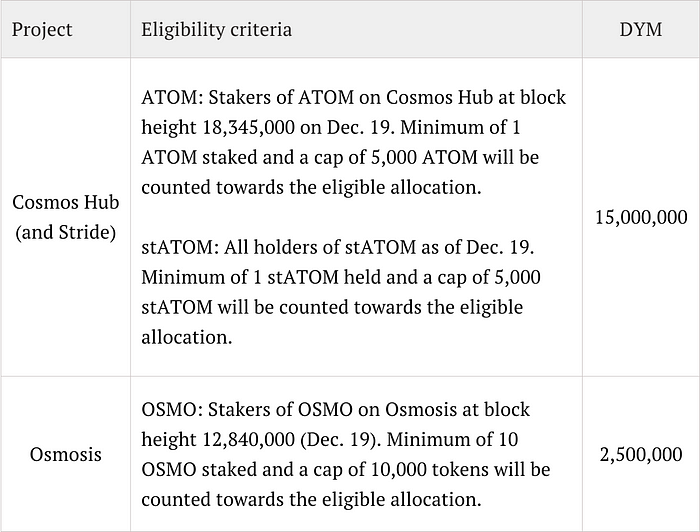The London hard fork has gone live, and Ethereum users are expecting that excessive gas fees will be eliminated. Will layer-2 scaling techniques be phased out as ETH improves? Polygon's co-founder disagrees. With the execution of EIP-1559, the Ethereum community is hopeful that the rollout of its London hard fork upgrade would address the overwhelming challenges surrounding the network's high gas fees. However, according to Sandeep Nailwal, Polygon's COO, the platform's scalability still has a long way to go.
Polygon is an Ethereum scaling and infrastructure development platform, as well as a networking platform for Ethereum-compatible blockchains.
The Ethereum ecosystem has been anticipating the release of Ethereum 2.0, which is expected to address the network's scalability difficulties. However, while you wait, Polygon — formerly known as Matic Network — has taken the initiative to give scalability capabilities right now.
Scaling solutions like Polygon, according to Nailwal, will still have a place in the Ethereum ecosystem after ETH 2.0.
“At the moment, the Ethereum chain is averaging around 13 transactions per second. Assume it becomes a 30-transaction blockchain,” Nailwal said in a video interview with Forkast.News. “You expect games, financial marketplaces, and exchanges here on Ethereum,” says the author.
The emergence of NFTs, blockchain games, metaverses, and decentralized banking, according to Nailwal, will boost industry demand for public blockchains like Ethereum. Apart from the increasing demand for more scalability solutions, privacy-focused technologies like zero-knowledge proof could be the next step in scaling blockchain networks.
“Paul Brody and Ernst & Young have done an outstanding job of informing the enterprise community that private blockchains are a myth,” Nailwal remarked.
”You have to gain some value from these blockchain technologies as an enterprise, and it has to be on a public blockchain.”
To discover more about Polygon's early days, proof-of-stake systems, the future of Ethereum scalability solutions, and the talent drain in India's crypto industry, watch Sandeep's full interview with Forkast.News Editor-in-Chief Angie Lau.
Highlights include:
- “We all know that Ethereum is incredibly decentralized, safe, but has scaling issues,” says Polygon. Polygon began by attempting to deliver the whole Ethereum development capacity on this layer-2, essentially. So that's how we got started. We were also really concerned with creating something that would be useful. In between, there were a lot of intricacies. As if it took a long time for us. We weren't from the Bay Area. We didn't have any well-known [venture capitalists] on our side.”
- Users were drawn to Polygon by high gas prices: “Ethereum was seeing the second or third wave of these high gas prices. “OK, that was a one-time phenomenon,” they said the first time it happened and then it dipped. But when it happened again, and again, and again, people understood something needed to be done. We were entirely production-ready by that point, thanks to the bottom-up method. And if you ask me why Polygon is successful, I'll tell you it's because we're production-ready.”
- “As an enterprise, you really need to gain some value out of these blockchain solutions,” says the proponent of zero-knowledge technology. It must be on a publicly accessible blockchain. You now require privacy. Scalability is required. Yes, we're all working to improve it. As a result, I believe that in 18 to 24 months, fewer businesses will have meaningful value-generating use cases on these blockchains. And the majority of them would most likely be supported by or run on some form of zero-knowledge technology. That is why, at Polygon, we have committed so much of our time, energy, and resources in the zero-knowledge domain over the last six months, and now we are at a point where Polygon will emerge as the industry's zero-knowledge powerhouse in two to three months.”
- “Soon, the Indian government must see that the brain drain in the blockchain field is so large because you are not constructing for your own people... I would never want to live anywhere other than India. I want to return to India and contribute to the ecosystem there. But then, because of this uncertainty, and I'm not saying whether it's positive or negative, nobody knows.”
- Rumors about a crypto prohibition in India: “I believe the majority of that is due to media sensationalism. I'm from India, and I'd say that 95 percent of any team building out of India either knows me or that I know them and what they're doing to reach out to me for investments and other things. And I haven't come across a single group working on a technology-related solution that is being negotiated by the government. The government has not contacted anyone. The government is just attempting to curtail, or at least figure out how to prohibit, speculation or gambling, which no one can deny causes a lot of retail to lose money.”









No comments:
Post a Comment
Note: only a member of this blog may post a comment.